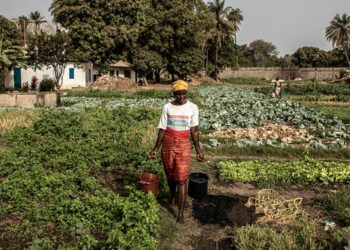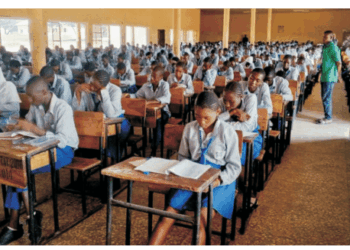In 2021, Nigeria’s population was estimated to be above 200 million and about 61 per cent (122 million) of the population were within the working age. Out of the 122 million in the working age group, 69.7 million are in the labour force and a significant proportion of them are without a job.
The most recent unemployment statistics shows that 33.3 per cent of the labour force are unemployed and another 22.8 per cent are underemployed. The situation is, however, worse for the young population (those between the ages of 15 and 34 years) as 42.5 per cent are unemployed and another 21 per cent are underemployed.
Similarly, the unemployment situation is higher among those without education as well as those with minimal education as the unemployment rate among those that have not attended school and those with primary school education is 31 per cent and 24 per cent respectively, relative to 17 per cent for those with post-secondary education.
With the country’s population estimated to reach 250 million people by 2030, the nation’s unemployment situation is increasingly drawing the attention of relevant stakeholders as the Nigeria’s ability to create sufficient jobs for new entrants as well as those in the labour market is undermined.
For instance, the sluggish growth of Nigeria’s manufacturing sector has limited employment creation in the country but recent studies highlight alternative industries, referred to as “industries without smokestacks” (IWOSS), that share many similarities to manufacturing including their propensity to absorb significant numbers of low-skilled labour, tradability, high productivity, and potential to significantly contribute to output.
Industries without smokestacks include tourism, horticulture, business services, trade, transportation, logistics and some information and communication technology (ICT)-based services.
The World Economic Forum identified five high in-demand roles, which are: (i) IT and data, (ii) sales and marketing, (iii) operating and logistics, (iv) manufacturing and production and (v) customer facing/front office.
Four out of the five identified job roles are related to IWOSS thus, indicating that the job of the future would be found in IWOSS. These opportunities IWOSS offers could be tapped into and accelerated if the Nigerian government amends policies to pave the way for greater investments into the IWOSS sector.
Across the world, employment creation in the IWOSS sector is premised on first, the transition towards climate- friendly activities that will create new jobs, technological advancement that will result in new forms of jobs, a competitive educational system, commitment to improvement in infrastructure, and creation of innovative financing options for SMEs.
The government needs to provide a framework that strengthens the flourishing of a competitive education system. This is important in ensuring that students are taught in-demand skills. In other words, the educational system prepares the students with skills necessary for them to be competitive in the job markets.
In the National Development Plan, 2021 – 2025, the federal government aims to create 21 million jobs by the end of 2025 through the private sector, It has also sought to increase its industrial capacity as a way of harnessing the benefits presented by the AfCFTA, generating employment opportunities, and stimulating GDP growth.
African Continental Free Trade Area (AfCFTA) which was launched on January 1, 2021, integrates 54 of the 55 African Union members, creating a market with a combined GDP of $3.4 trillion. It aims to create a single market for goods, services, and the free movement of labour, and it intends to abolish tariffs on 90 per cent of the goods produced in the region. The implementation of the agreement is expected to enhance cross-border financial transactions, expansion of the agro-processing businesses, and increase the demand for transportation and logistics services. Significant number of jobs are expected to be created in these industries with implementation of supportive policies in line with the AfCFTA. The IWOSS sector presents exciting earnings that are geared towards expanding the country’s industrial capacity.
Needless to say, the country’s infrastructural deficit is enormous and constitute a drag to economic growth and development. Recent evidence suggests that the country still lags and needs to intensify efforts to improve its digital economy.
The existing deficiency in digital infrastructure has constrained the competitiveness of Nigeria’s e-commerce and logistics business, thereby lowering the extent to which they can expand, and suggesting that there are ample rooms for growth.
The commitment to improve infrastructure should also include the power and the transportation infrastructure. The power sector infrastructure should aim at simultaneously expanding the country’s power generating capacity and transmission.
Need we say more that investment in transportation is crucial in reducing congestion at the ports and commuting time, which indirectly increases the cost of doing business in the country. These interventions can transcend to positive IWOSS sector productivity.
Governments, policymakers, and key stakeholders should collaborate to increase investment in infrastructure.
Only then can the generality of the populace take the government and its ambitious National Development Plan, 2021 – 2025 serious.
















